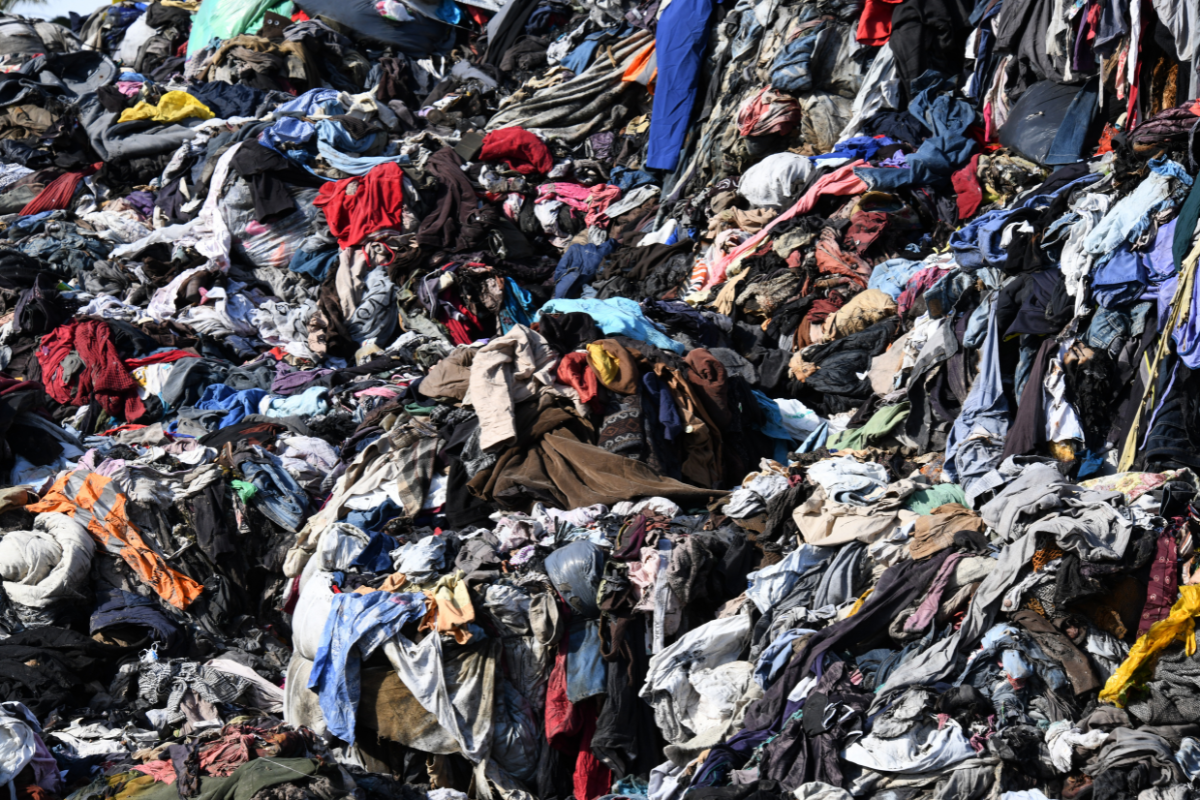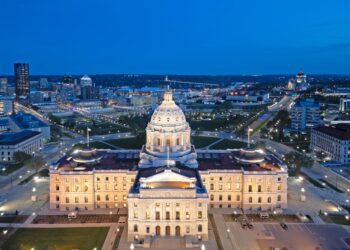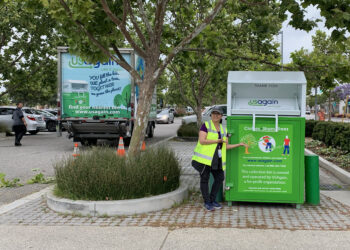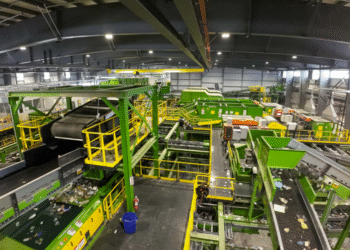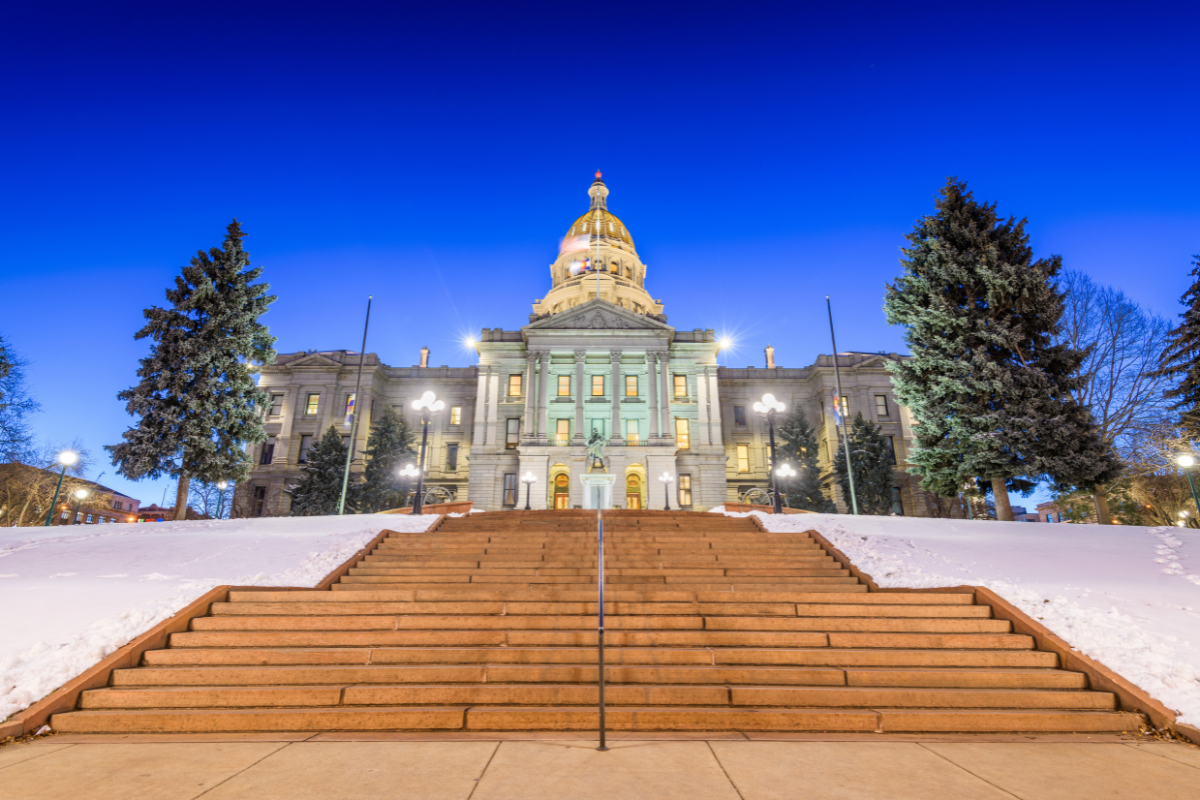Editors note: Join us at the 2026 Resource Recycling Conference where we’ll dive deeper into the topic of reuse.
At a recent Washington Department of Ecology webinar focused on how policy can shift fashion toward reuse, circular-economy advocate Rachel Kibbe argued that a targeted tax change could make secondhand purchases more affordable while helping states prepare for new recycling rules.
Speaking on October 2 during the Common Threads: Textile Listening Series, Kibbe said removing sales and use taxes from secondhand goods would cut costs for consumers and strengthen resale markets. The discussion, hosted by the state’s Recycling Market Development Center (RMDC) within Ecology, drew about 70 participants from business, government and advocacy groups, according to Kibbe.
Kibbe is founder and chief executive of American Circular Textiles, a national coalition that advises lawmakers on EPR and related textile policy. “We are the only national coalition focused exclusively on circular textile policy in the United States,” she said. “Every stick needs a carrot.” She framed secondhand tax exemptions as a demand-pull complement to EPR’s regulatory approach.
Under current practice in many states, used goods are taxed when sold new and again when resold. Kibbe said ending the second charge could lower purchase prices by about 9% in Washington, increase business revenues by $20 million to $36 million a year and keep roughly 15 million pounds of textiles out of landfills over several years. She presented those figures as her organization’s analysis specific to Washington.
In January, Resource Recycling profiled national efforts to scale textile reuse and recycling, from Goodwill’s network to mail-back programs, and a conference panel that mapped infrastructure gaps and policy needs. The piece underscores growing interest in EPR and private-sector partnerships that set context for Washington’s listening series. The RMDC was created by the Washington Legislature in July 2019 to develop in-state markets for recyclables and to support research, business assistance and policy evaluation.
Kibbe emphasized, in a discussion with Resource Recycling, that incentives must sit alongside regulation if states expect reuse and recycling to scale. She pointed to the proposed Americas Act, bipartisan federal legislation first introduced in 2024, which would direct more than $14 billion in loans and grants toward textile reuse and recycling, innovation, workforce training and public education. Her coalition has publicly supported and consulted on the textile provisions.
The tax-exemption concept has faced hurdles. Lawmakers in Maryland and North Dakota examined limited tax-holiday versions in past sessions, but proposals stalled as officials weighed the loss of revenue dedicated to services such as roads and schools. Kibbe said those concerns are central to the debate, which is why states may consider caps by price or category and clear tracking rules for stores that sell both new and used goods.
Recent industry moves show both momentum and gaps. A Goodwill–WM collaboration announced in November 2024 aims to expand collection and sorting through a regional network with textile recycler Reju, a sign of growing private-sector engagement that still needs stronger market demand and processing capacity.
Kibbe added that not every garment can be resold and that US recycling capacity remains small. She said finance and workforce programs envisioned in the Americas Act could help build reverse logistics and processing so that collected textiles do not default to disposal.
During the Q&A portion of the webinar, questions coalesced around exports and equity, and Kibbe cautioned that restricting exports too quickly could harm domestic operators that still rely on global resale markets while US capacity develops, citing European debates and industry pushback. She also cast the tax-exemption idea as an affordability tool for shoppers who weigh secondhand against low-cost fast fashion.
Public engagement is part of her strategy. A two-month petition campaign launched in 2024 by American Circular Textiles drew about 1,600 signatures and has since been reopened with a template letter to state lawmakers. Coverage by trade and business media has highlighted the aim of ending what advocates call double taxation on secondhand apparel.
For RMDC, Common Threads continues a year of sustained programming. Ecology’s spring webinar series Unraveling the Textile Industry for a Regenerative Washington established common language and documented pain points such as data gaps and the cost of collection. Those sessions set up the fall’s listening events, which concentrate on policy options and market signals.
Kibbe said the coalition’s goal is to help make rules workable and incentives effective. “We consulted on the Americas Act,” she said, noting that states will also need measures that stimulate demand for resale. She encouraged attendees to connect with her organization if they are interested in advancing secondhand sales and use tax exemptions and to add their names to the petition.
The Common Threads series will continue later this year, with sessions expected to examine textile recycling infrastructure and innovation pathways.













